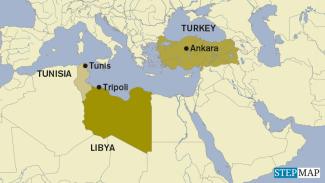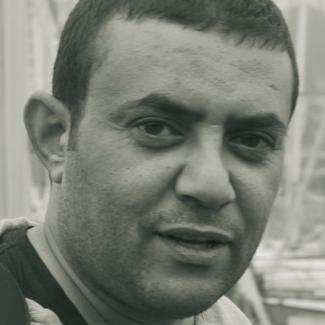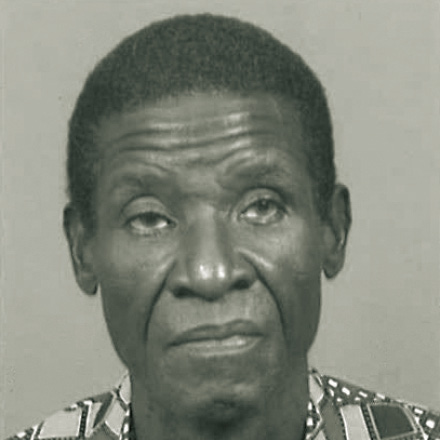Lockdown
Falling ill while far from home
 stepmap.de
stepmap.de
Normal 0 21 false false false EN-US X-NONE AR-SA /* Style Definitions */ table.MsoNormalTable {mso-style-name:"Normale Tabelle"; mso-tstyle-rowband-size:0; mso-tstyle-colband-size:0; mso-style-noshow:yes; mso-style-priority:99; mso-style-parent:""; mso-padding-alt:0cm 5.4pt 0cm 5.4pt; mso-para-margin-top:0cm; mso-para-margin-right:0cm; mso-para-margin-bottom:8.0pt; mso-para-margin-left:0cm; line-height:107%; mso-pagination:widow-orphan; font-size:11.0pt; font-family:"Calibri",sans-serif; mso-ascii-font-family:Calibri; mso-ascii-theme-font:minor-latin; mso-hansi-font-family:Calibri; mso-hansi-theme-font:minor-latin; mso-ansi-language:EN-US; mso-fareast-language:EN-US;}
Most journalists prefer to avoid becoming the subject of the stories they write. But for two Libyan journalists who went abroad recently, Covid-19 – and the lockdowns that it caused – became a personal problem when they fell ill themselves.
Mohamed Elblili, a Libyan television journalist, worked for a Libyan TV station in Tunisia, having left his home 60 kilometers west of Tripoli. When the Coronavirus started spreading in Tunisia in March, his reporting naturally focused on the outbreak and the impact of the lockdowns in that country.
But in mid-April, his luck ran out, and he came into unwanted direct personal contact with the local medical system. Elblili was involved in an accident that hurt his shoulder and neck. He tried self-treatment and ultimately had to go to a hospital due to severe pain. Doctors treated his injury and sent him home with instructions to rest for three weeks.
Resting during a pandemic proved difficult. The Covid-19 story still needed to be covered. In addition, since he lives far from his support network back home, Elblili found it difficult to buy food or cook with an injured shoulder. Life in general seemed to slow to a standstill. Unable to work, Elblili took unpaid leave and began to face financial problems on top of the physical ones.
As a reporter, Elblili could see he was not the only one with Coronavirus-related problems. “For many people, Covid-19 led to job losses and made life difficult,” he says. Still, the distance from home was an added factor complicating his daily life.
Another Libyan journalist, Zuhair Bu Serweil, has a similar story to tell. In March he flew to Istanbul to attend a workshop on investigative journalism. Shortly thereafter Turkey closed its airports due to Covid-19, and he found himself unable to return home.
Making matters worse, the workshop was cancelled due to Covid-19. The organisation sponsoring the workshop helped with housing and food, but the purpose of the trip had vanished, and so had the possibility of leaving Turkey. Still, “it was nice of them to not leave me alone,” Serweil says.
Then some health problems appeared. Serweil suffers from asthma and from sensitivity to mites – tiny microscopic relatives of the spider. His temporary residence in Istanbul was home to many cats, which exacerbated breathing and sinus problems. With Covid-19 spreading in Istanbul and hospitals facing high demand, Serweil didn’t know where to turn for medical attention.
He tried self-medication with antihistamines for over a month, without seeing much improvement. “Then I started to suffer from sore throat and inflammation and needed antibiotics, but that requires a prescription from a doctor,” he says.
The solution came from his sister, a pharmacist, who advised him to take a particular over-the-counter remedy as a temporary measure. It is working – so far – and he hopes to keep the symptoms under control until he can return to his work and his life in Libya.
Moutaz Ali is a journalist in Tripoli, Libya.
ali.moutaz77@gmail.com


